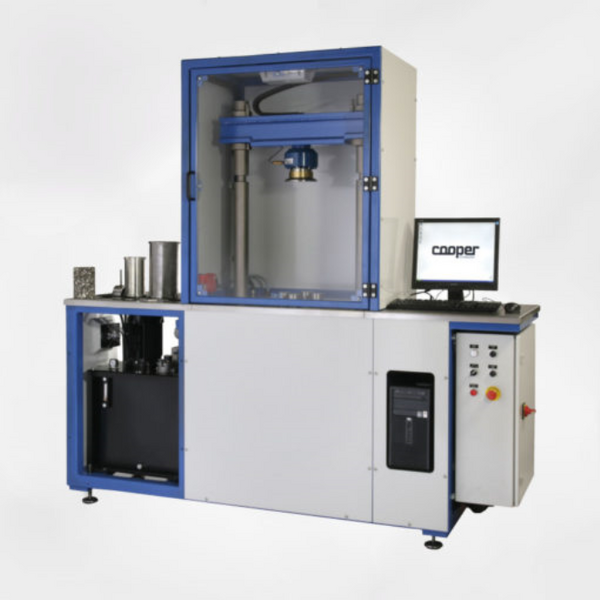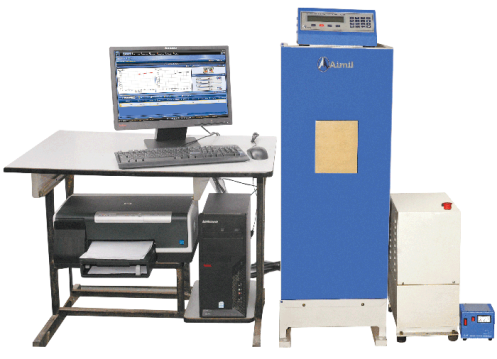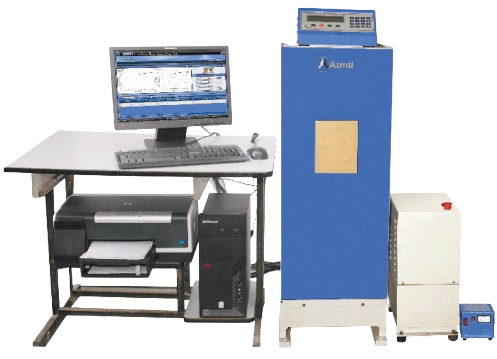Understanding Compression Testing Machines: How to Choose the Right One
Compression testing is a fundamental method in material testing, especially in industries like construction, manufacturing, aerospace, and civil engineering. It helps evaluate how materials behave under a compressive load, ensuring they meet required safety and performance standards.
One of the most critical tools for this job is a Compression Testing Machine (CTM). Whether you're testing concrete cubes, metal specimens, or components like springs or elastomers, choosing the right CTM is essential for getting accurate, reliable results.
What Is a Compression Testing Machine?

A compression testing machine is a mechanical or electro-mechanical device used to test the compressive strength of materials. It applies a gradually increasing force to a specimen until it deforms or breaks. This allows engineers to understand the maximum load the material can bear without failure.
These machines are commonly used for:
Key Components of a CTM
Types of Compression Testing Machines

Key Parameters to Consider while buying a Compression Testing Machine :
Standards Compliance
Ensure the CTM meets international testing standards such as:
Applications of CTMs in Industries
Maintenance and Calibration
Regular calibration is critical to ensure your machine remains accurate. It's best to get CTMs calibrated annually by a NABL-accredited lab or as per internal QA procedures.
Also, keep the machine free from dust and properly lubricated. Regular software updates (for digital models) and platen inspection will help extend the machine’s life.
Choosing the right compression testing machine depends on your testing needs, budget, and compliance requirements. Whether you're running a material testing lab or a construction site, selecting the right CTM ensures not just compliance but also confidence in the material’s performance.
Always opt for trusted manufacturers, and if possible, demo the machine before purchasing. With the right choice, your lab will be equipped to deliver precise and reliable compression test results for years to come.
To Read More :

 medium.com
medium.com
Compression testing is a fundamental method in material testing, especially in industries like construction, manufacturing, aerospace, and civil engineering. It helps evaluate how materials behave under a compressive load, ensuring they meet required safety and performance standards.
One of the most critical tools for this job is a Compression Testing Machine (CTM). Whether you're testing concrete cubes, metal specimens, or components like springs or elastomers, choosing the right CTM is essential for getting accurate, reliable results.
What Is a Compression Testing Machine?

A compression testing machine is a mechanical or electro-mechanical device used to test the compressive strength of materials. It applies a gradually increasing force to a specimen until it deforms or breaks. This allows engineers to understand the maximum load the material can bear without failure.
These machines are commonly used for:
- Concrete testing (e.g., cube or cylinder strength)
- Metals and alloys
- Plastics, composites, and rubber
- Packaging materials like cardboard or foam
Key Components of a CTM
- Load Frame: A rigid structure that holds the test specimen and the loading system.
- Hydraulic or Screw Mechanism: Applies the compressive force to the sample.
- Load Cell or Pressure Gauge: Measures the amount of force applied.
- Controller/Software: Modern CTMs have digital displays or software interfaces for controlling tests and logging data.
Types of Compression Testing Machines

- Manual Compression Testing Machine - Operated by hand or lever, Ideal for small-scale or low-budget labs, Less precise compared to automated machines
- Digital/Automatic Compression Testing Machine - Provides high accuracy and repeatability, Equipped with data logging and analysis features, Recommended for large labs or frequent testing
- Servo-Controlled Compression Testing Machine - Offers precise control over load rates and timings, Suitable for advanced material research and critical applications, Higher in cost but best for accuracy and automation
Key Parameters to Consider while buying a Compression Testing Machine :
- Capacity : Compression testing machines come in different load capacities, ranging from 10 kN to over 3000 kN. For concrete cube testing, a 2000 kN capacity is standard.
- Accuracy and Resolution : Choose machines that comply with standards like IS, ASTM, or EN. Look for CTMs with high-resolution sensors and digital displays for better accuracy.
- Type of Specimen : Consider whether you’re testing concrete, metal, plastics, or packaging—as each may require a specific type of platens or loading arrangement.
- Automation and Data Logging : For quality assurance, production, or research, machines with automated controls, real-time graphing, and USB/PC connectivity are highly recommended.
- After sales service and parts or software
- Price of compression testing machine - Value for money.
Standards Compliance
Ensure the CTM meets international testing standards such as:
- IS: 516 (India – concrete)
- ASTM C39 (USA – concrete)
- ISO 7500-1 (Global – calibration)
Applications of CTMs in Industries
- Construction: To test concrete cube strength for building integrity.
- Aerospace & Automotive: For component load testing.
- Manufacturing: Quality control of molded or pressed products.
- Packaging: Ensuring strength of boxes or foam materials used in transport.
Maintenance and Calibration
Regular calibration is critical to ensure your machine remains accurate. It's best to get CTMs calibrated annually by a NABL-accredited lab or as per internal QA procedures.
Also, keep the machine free from dust and properly lubricated. Regular software updates (for digital models) and platen inspection will help extend the machine’s life.
Choosing the right compression testing machine depends on your testing needs, budget, and compliance requirements. Whether you're running a material testing lab or a construction site, selecting the right CTM ensures not just compliance but also confidence in the material’s performance.
Always opt for trusted manufacturers, and if possible, demo the machine before purchasing. With the right choice, your lab will be equipped to deliver precise and reliable compression test results for years to come.
To Read More :

Understanding Compression Testing Machines to Choose the Right One
Know about compression testing machines, how CTM works, its uses, and points to consider while buying CTM. Advantages of Aimil CTM over…
